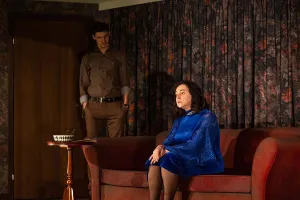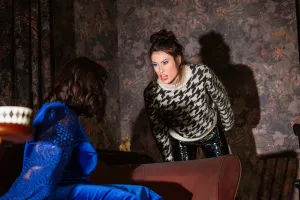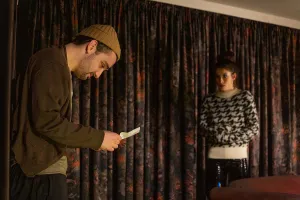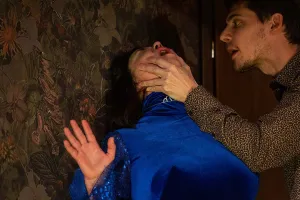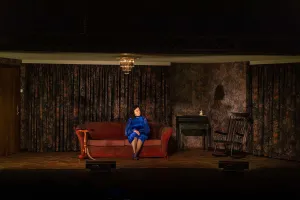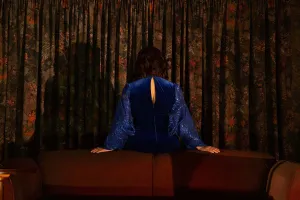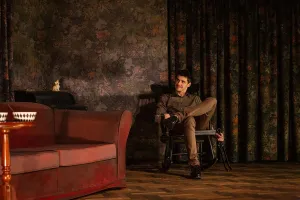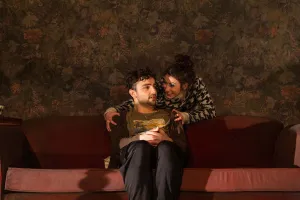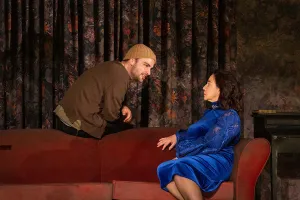The pelican
drama by August Strindberg
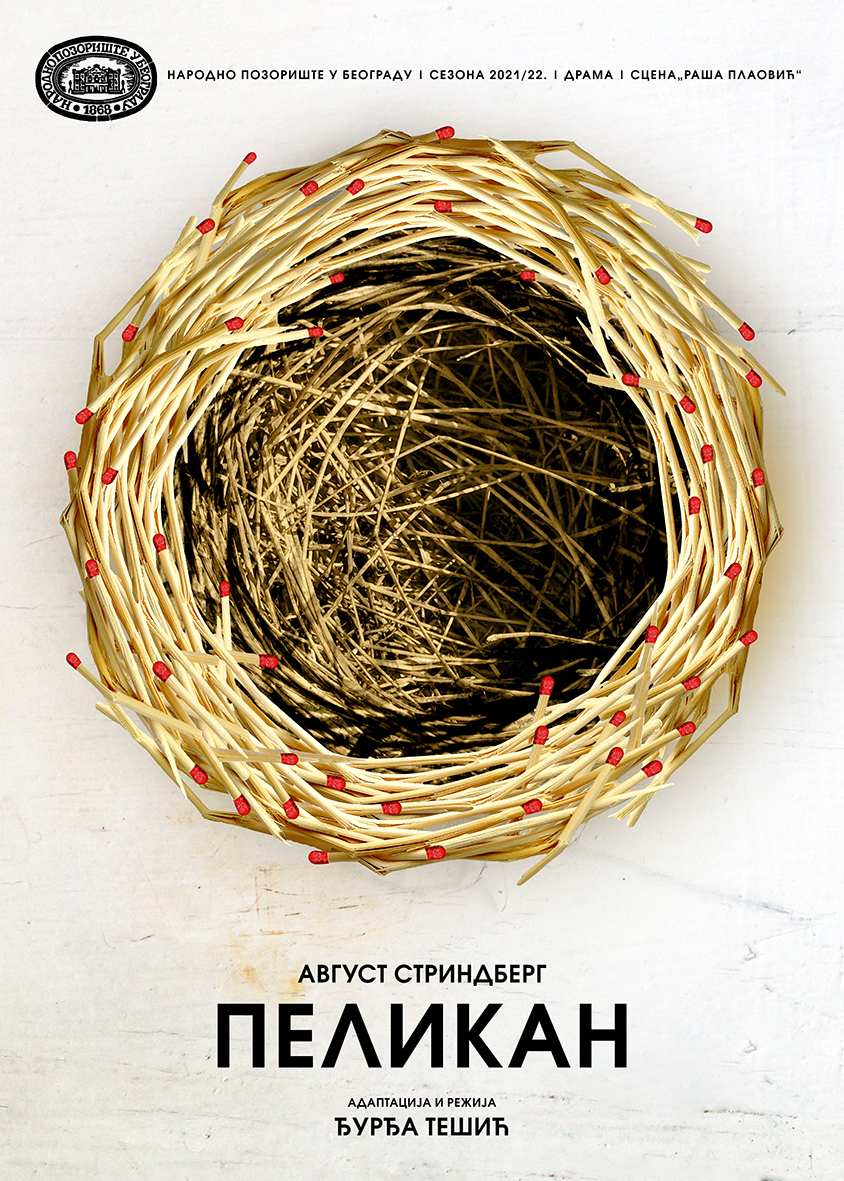
August Strindberg: The Controversial Father of Modern Swedish Literature
Strindberg's life path (1849-1912) was full of twists and often complete turns, both in his professional and personal life. As a young man, he already showed interest in various topics. He first started studying natural sciences in the city of Uppsala, and then switched to studying languages. During his studies, he began to write, and after the success of the play The Outlaw King Charles XV gave him a scholarship to continue his studies. However, not only that Strindberg did not graduate, but in a collection of short stories about his student life (Town and Gown) he mocked Uppsala, the university and the professors. After leaving the university (for the last time), Strindberg began his career as a journalist and a newspaper critic in Stockholm, and at the same time he tried to establish himself as a writer. When he was thirty, he finally received wider recognition with his work The Red Room, which is today considered to be the first modern Swedish novel.
After that, Strindberg became a leading figure of Swedish radical intellectuals, and became renowned in Europe for his work after the plays The Father (1887) and Miss Julie (1888), which are considered prominent works of the naturalistic literary movement whose main idea was to erase the line between life and art, to remove artistic conventions and to enable penetration of truth into art, in other words – to present the problems of modern life from which the theatrical trends of romanticism had moved away.
It would be a mistake to reduce Strindberg's dramatic opus only to these two plays - this extremely prolific playwright wrote over sixty of them. However, what is interesting is that he dedicated only a small part of his life to playwriting, a little less than ten years in total. Strindberg devoted the rest of his time to painting, photographic experiments, and during the 1890s he was also involved in alchemical research. After a major psychological crisis he experienced, and which he described in the novel Inferno (1898), his inclinations as an author changed, and he started writing the dramatic trilogy The Road to Damascus (1898), a work of great importance for modern drama, where naturalism gives way to symbolism and expressionism (or rather, its predecessor). Somewhere in this period, Strindberg, a sworn atheist until then (and before that, a Lutheran and a deist), began to take an intense interest in religious and spiritual topics. In that period, he returned to writing historical plays with which he began his career as a playwright. Now with his characteristic ambivalence, Strindberg, together with historical dramas, started thinking about their opposite. He realised that a new drama needed a new theatre, a more intimate relationship between the stage and the audience, and so, under the influence of Antoine's Theatre Libre he founded the First Scandinavian Experimental Theatre and then the Intimate Theatre in Stockholm, for which he wrote several chamber plays, a genre whose name he devised and of which he is a pioneer. One of such plays written, and the first to be performed at the Intimate Theatre, was The Pelican. Shortly after the opening of the new theatre, Strindberg contracted cancer and died. Although he was very bitter and critical of his native Sweden and its people, he was a real star and despite his own efforts to organize his funeral in advance to minimize the attendance, it is estimated that around 60,000 people came to pay their last respects to the writer.
It should be mentioned that during his life Strindberg was a central figure of many controversies that are still the topic of discussion today, and which do not only relate to his alchemical-mystical inclinations. Namely, Strindberg, who was married three times and divorced twice (although he separated from his last wife, there was no formal divorce), had a complicated relationship with the female gender, which varied from worship to misogyny. In the program text Women's Rights printed in 1884 as a preface to Married, Strindberg stands out as an early advocate of women's right to vote; and then, on another occasion, in his written address to the legislators, he asked them to reconsider the emancipation of these "half-monkeys", "crazy offenders" and "evil animals". Apart from misogyny, Strindberg was a declared anti-Semite, but there was a reversal here as well, so in 1884 he distanced himself from his anti-Semitism with an article titled My Hate towards the Jews published in a social-democratic newspaper.
Contemporary interest in Strindberg's problematic system of beliefs and values can only be compared to the interest in his extensive and influential work that is often considered the pinnacle of nineteenth-century literature.
Strindberg's most important works, in addition to those mentioned, are: the plays Master Olof (1872), The Dance of Death (1900), A Dream Game (1901), The Ghost Sonata (1907); novels - The Son of a Servant (1886), Legends (1897), Inferno (1897), Le plaidoyer d'un fou (The Defence of a Fool) (1876), collection of stories Married (1884, also translated as Marriages in our country)…
August Strindberg's "Intimate Theatre"
In 1907, near the end of his life, Strindberg founded the Intimate Theatre together with the actor August Falk. The purpose of the theatre was clear and direct - to perform Strindberg's plays in a special setting. In a letter to Falk, Strindberg explains the conditions in which he wants to perform his chamber plays, which, just like chamber music, should be characterized by reduced acting ensemble, moderateness of artistic means used and theatrical setting itself:
„1. No alcoholic beverages.
2. No performances on Sundays.
3. Short performances, without intermission.
4. There is no call bell for the audience.
5. Only 160 seats in the theatre hall.
6. No prompters. No orchestra, only music on stage. (…) "
The Intimate Theatre is modelled after Max Reinhardt's Kammerspiel Haus, one of the most prominent directors of German-language theatre in the early 20th century. It was mostly painted in shades of dark green, and the ceiling was covered with a curtain of yellow silk, which created the effect of soft daylight. The stage was unusually small at the time, 6-9 meters. Instead of a common restaurant, which was a common part of the theatres at the time and an indispensable area for socialisation, Strindberg dedicated two separate rooms to the audience, one for the ladies and the other for the gentlemen. The goal of all these decisions was to make the audience focus as much as possible on the very reason for coming to the theatre building - that is, on watching a theatre play.
The theatre opened with the play The Pelican which received positive reactions from the audience. However, despite the successful opening, the theatre found itself in financial difficulties already in February 1908, and Falk had to borrow money from Prince Eugene, Duke of Nericia (Närke), a painter, collector and patron, who had previously attended The Pelican premiere. The theatre went bankrupt in 1910, but did not close until Strindberg's death in 1912.
Đorđe Kosić
Instead of the Word from the Director- an Interview
(An Interview with Đurđa Tešić)
This is the sixth time you direct at the National Theatre. All previous plays (Black Milk, Pool (No Water), Public Service, Strengthened by Iron and A Lullaby for No One’s Vuk) were written by foreign and Serbian contemporary playwrights. Now, you have chosen a classic, the famous August Strindberg, with whom you first "met" in 2007 in Banja Luka, where you staged Miss Julie with great success. So, after a decade and a half, you return to this playwright who is often called the "father" of modern theatre and modern thought. How did he "win" you over in The Pelican?
This work on Strindberg is actually the result of a prior agreement that I had with my long-time colleague and friend Boris Komnenić. We wanted to do The Father, and the Drama Department of the National Theatre, headed by the Drama Manager, Molina Udovički Fotez, supported that plan. Unfortunately, our plans turned out to be fragile, but the emotions were not. We lost Boris, too early and completely unprepared. Thinking about how and where to go next, the idea of The Pelican came to my mind, which is a play that was rarely, actually, only once before staged in our country. It is a play from his last opus called chamber plays (chamber – a room, usually a private one, therefore, chamber plays, as he had an idea to convey the atmosphere of musical chamber ensembles to stage) and there are four of them in total which he wrote just before the end of his artistically and privately turbulent creative life. Unfortunately, only two of those plays have been translated in our country - The Pelican and the more famous one - The Ghost Sonata. The entire opus is imbued with intimacy in form, intense but simple plots, far-reaching perspective of human relations and humanity. The Pelican is primarily a family drama that begins with the death of the father. It is, in fact, a prolonged and disturbing clash between the children and their own mother after the long-lasting domestic policy based on a lie, but which their mother practiced in a classic family during a twenty-five-year civil marriage, was finally exposed. On a symbolic level, the absence of the father in the play The Pelican is actually a continuation of the play The Father. The Drama Manager, a team of great talented young people consisting of Nedim Nezirović, Iva Milanović and Vučić Perović, with Vanja Ejdus in the role of maid Margret, led by Dušanka Stojanović Glid in the role of Eliza, and I decided, out of great love and respect, to dedicate this play to our remarkable actor and artist, Boris Komnenić. Apart from personal motives, I think it is very important to use every opportunity to work with classics, especially with authors who are rarely on the repertoires of our theatres, as young people may never have had the opportunity to see them. It is also interesting for me that after my youthful acquaintance with Strindberg's work, now, from a completely different and more mature perspective, I have the opportunity to feel and interpret this lucid, psychologically and introspectively deep, politically and socially active, and even contradictory, self-examining and penetrating spirit of a genius such was Strindberg. Franz Kafka said about Strindberg: "I do not read Strindberg just to read it, but to squeeze into his bosom. He holds me like a child in his left hand. I'm sitting there, like a man on a statue... "
Unlike the Strindberg that we are familiar with, The Pelican is a rather unknown play on our theatre stages. Why should this play be performed today?
First of all, because of its topic that involves the quest and the need for truth. I think we live in a world where it is very difficult, even impossible to reach the truth in any sphere of public life. Whether it is politics or healthcare or the education system – all the same it is a world of lies and deception. I have the impression that with the help of the Internet and social networks, everyone can find like-minded people to support the lie he or she has chosen. To find proof and confirmation for those who think alike. Not all of us are strong enough to endure the terror of lies (because a lie is a deliberate concealment of the truth) and not to fall into self-destruction in a morally and psychologically twisted environment.
The Pelican is a classic and specific chamber play full of mysticism, doubts and truths accumulated in the family circle, full of symbolism, dreams and true tragedy that follows the quest for truth. What will be the focus of your directorial reading of this piece?
Strindberg's deep wanderings are visible and interwoven in The Pelican, imbued with a sense of guilt because of three, unfortunately, unsuccessful marriages and his own isolation, as well as dealing with mysticism and occult sciences that brought him to the edge of reason. However, he managed to connect his personal experiences with the mystical element and actually create a new reality that helps us better understand the internal world of human existence. The notion of truth is a first-class philosophical notion and, in general, the main notion of life. The most important thing in The Pelican for me is the insight into what a lie produces in us, the consequences of a lie and the question of how to deal with the feeling that we are constantly lied to by those we should absolutely trust, who should pose as people with some authority, who should have influence on us and should form our attitude towards reality? On the psychological, metaphysical and even political level, how should one fight lies? For me, The Pelican is a metaphysical drama with the elements of a psychological thriller and absurd drama. A kind of a specific absurd humour also appears. I summed up the plot in one night, more precisely the whole drama takes place from the late afternoon to deep into the night.
By identifying with the pelican - a bird that, according to the legend, feeds its youngsters with her own blood, the mother actually condemned her children to hunger and cold. Is she even aware of her monstrous selfishness and cruelty?
The character of Eliza, a mother who is actually everything contrary to the legend of a bird that feeds its youngsters with her blood in order to survive, is interpreted as a person with borderline personality disorder. Eliza is a narcissistic person, a woman who did not give love to her children, who felt threatened by them, as they were silent witnesses of her conspiracies and lies, naughty and disobedient except when they were humble and dependent on her power mechanisms. Naturally, she is unaware of her actions because such a personality structure presents itself as a huge victim whenever she gives or assumes responsibility. Eliza finds an ideal partner in the character of Axel, her son-in-law with whom she has developed a perverted, secret relationship. Axel is a totally corrupted, money-oriented, lucid and dangerous man who solely looks after his own interests. He does not understand the depth of Eliza's disorder because there is no spiritual world for him. At the time when the play was written, in 1907, Freud was just about to make a breakthrough with his revolutionary psychological discoveries, the human soul was a great labyrinth and an unexplored terrain. It is unfortunate that some people today, when there are various successful forms of help, continue to equally expose their loved ones to great suffering, and we are also aware that a large number of public figures actually use public space as a field for unloading their narcissistic and other mental deviances.
Eliza keeps deceiving her relatives, steals and cheats on her husband, she reluctantly spends money on her children… Only on their father's deathbed do children learn about their mother's horrible deception. How painful is it for children to live with such an awful truth? Should we always tell the truth or is it sometimes better to lie to avoid a truth that can do even more harm?
The question of should we tell the truth or not represents the biggest part of the conflict between Fredrik and Gerda, a brother and sister. Fredrik, an unfinished law student, a classical music lover, philosopher and essentially an artist, has deeply soaked his soul with alcohol - a little bit because of his cough, a little bit because of the cold - as he says, but in fact because of his inability to tell the truth, to reveal all the secrets and to confront his mother with everything that she had done to them, because of the pain she had inflicted on him with her lies. He needs the truth, he seeks proof for the final showdown. Fredrik could not allow the evil to continue and he will destroy it at all costs. On the other hand, Gerda is somewhat infantile, hypersensitive, Gerda’s pure soul wants to see the better side of the harsh reality, and she refuses to wake up from some kind of a dream because she is afraid she won’t be able to bear the truth. Yet, the truth finds her, and in my experience and in what I feel is right - it gives her strength to fight! People do suffer because of the truth, but the truth also gives us the strength to fight back.
(Interviewed by Mikojan Bezbradica)
Premiere performance
Premiere February 23rd 2022 / "Raša Plaović" Stage
Translation Miroslava Buljan
Adapted and directed by Đurđa Tešić
Dramaturge Đorđe Kosić
Costume and Set Design Zorana Petrov
Composer Vladimir Pejković
Vocal Coach Ljiljana Mrkić Popović
Movement Director Damjan Kecojević
Video Jelena Mitrović
Drama Producer Miloš Golubović
Stage Manager Miloš Obrenović
Prompter Ljubica Raković
Assistent Set and Costume designer Jasna Saramandić
Cast:
Elise, mother, recently widowed DUŠANKA STOJANOVIĆ GLID
Fredrik, her son, a law student NEDIM NEZIROVIĆ
Gerda, the daughter IVA MILANOVIĆ
Axel, the son in law, married to Gerda VUČIĆ PEROVIĆ
Margret, maid VANJA EJDUS
Light Operater Srđan Mićević
Make-Up Marko Dukić
Stage Crew Chief Nevenko Radanović
Sound Operater Nebojša Kostić
Video Dušan Spasić and Borivoje Andrijević
Set and Costumes were manufactured in the National Theatre Workshops

